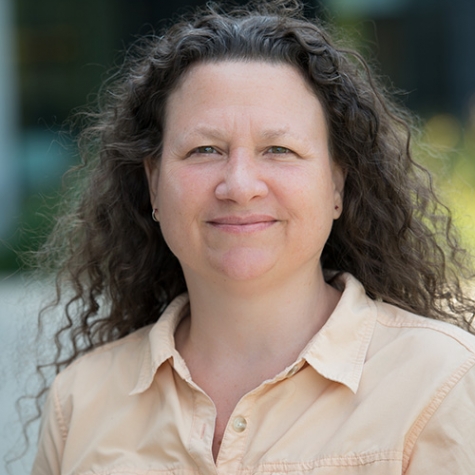When Lisa Childers began developing software professionally for the statistical software company SPSS Inc. (now IBM® SPSS® Statistics) in the early 1980s, neither wide-area nor local-area networks were readily accessible. She sat at a dumb terminal and sent her code to a mainframe via a 600-baud modem. Upon leaving the company 15 years later Lisa had contributed code to their first popular desktop product, SPSS for Windows, and occasionally scanned Usenet comp.lang for information. A new era had dawned.
In 1997 Lisa moved from the closed-source world of commercial software development to Argonne National Laboratory, home to world-class open science. Over the years she has worked for three distinct groups within Argonne, each different in their way, but all enabling her to pursue her passion for collaboratively creating technology to help others achieve their goals:
- In 1997 Lisa joined Rick Stevens' research group in Argonne’s Mathematics and Computer Science (MCS) Division and helped co-found a room-based, group-to-group, multimedia collaboration system. The Access Grid was an open-source project that spanned the globe, built in collaboration with other small research groups to facilitate interactions by scientists without regard for location. Because Access Grid nodes were physical rooms networked with each other via wall displays and high-quality audio, distributed groups of users were able to interact in virtual space as if in the same room.
- In 2003 Lisa moved to Ian Foster’s MCS research group to begin work on the Globus project, with its audacious vision of world-wide resource sharing across administrative domains. While there, Lisa helped co-found a service that eventually became the cloud-based Globus File Transfer service in use today.
- In 2013 Lisa joined the staff of the Argonne Leadership Computing Facility (LCF) Division.
Lisa currently works in the Advanced Integration Group within the LCF. Her primary focus is workload and resource management (and tracking) on extreme-scale machines. She is also interested in facilitating user interactions with extreme-scale machines to improve productivity in scientific pursuits.
Lisa is excitedly looking forward to what the future holds next.
